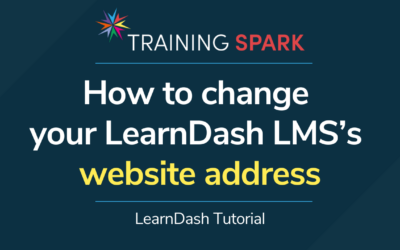One of the biggest challenges with online learning can be motivating your learners – to enrol, progress and complete. Often life can get in the way, particularly when a course is self-paced and there are so many things competing for their attention.
Ironically on-demand elearning’s biggest strength – that it is available anytime, from anywhere – is also its biggest flaw. This attribute doesn’t create a sense of urgency for the learner and help them schedule this into their lives.
An alternative to self-paced online learning is cohort-based learning. Cohort-based learning is a format used predominantly in on-campus educational programmes at colleges or universities but has yet to be widely adopted in corporate or commercial training.
We define cohort-based learning as:
A collaborative learning format in which a group of individuals advance through a facilitated program together.
If you think back to your own educational studies, it’s likely that you and your classmates undertook a regular schedule of study, had the same deadlines, often worked together and had discussions as a group to improve your understanding and develop your skills.
Cohort-based learning, when delivered online, follows the same principles. As an online cohort, students will receive access to online materials at the same time, work together at times, discuss as a group and progress at the same schedule.
So what are the benefits of cohort-based courses for your learners?
Cohort-based learning brings has some significant advantages over self-paced online learning:
Structure
Learners advanced through an online programme with a specific schedule. For example, learning materials could be released by the course creator each week, helping the learner to understand what they need to achieve each week and help them build a rhythm with their learning.
With an on-demand elearning course, a learner needs to have the discipline and study skills to create this themselves – which can often be very difficult with our busy lives and competition for our attention.
Accountability
As learners work together as a group of learners, there’s a reliance on each other to progress through the programme, share their insights and make sure they are making a valuable contribution.
No one wants to be the weak link in the group!
Learning from and with others
A cohort-based course brings opportunities to learn from others. It’s why a lot of people like face-to-face training – it provides opportunities to hear fresh perspectives and learn from others experiences. There’s no reason why this cannot be part of an online learning experience too.
As a course creator, you should consider how you can facilitate the sharing of information across a group too. This could be as simple as asking your students to comment on specific topics, hosting weekly group calls or instigating discussion through social media channels.
Support
A self-paced course can be a lonely experience at times, particularly if you run into difficulties or struggle with the concepts being taught.
In a cohort-based course, learners can look to their peers to help them with challenges they’re facing or discuss what’s been taught in more depth. They can also seek encouragement when motivation is low!
Feedback
A critical part of a successful learning experience is feedback. Often receiving feedback from peers can be even more valuable for students.
Giving feedback is also an important skill that students can develop. Having the role of a teacher makes students reflect on their own work too.
Flexibility
With a self-paced online course, each student has the same experience, irrespective of their experience, understanding or prior learning. With a cohort-based course, students have the opportunity to feedback to course tutors and evolve the direction of the programme as it progresses.
Networking
Being part of a cohort of learners brings opportunities to connect with peers. Learners will be doing the course for a specific reason and, even if they are based from all around the world, may share similar interests and experiences. Being part of a cohort will help them create new relationships and build their network.
—
In summary, cohort-based courses can provide learners with a rich learning experience with a number of advantages over traditional, self-paced elearning.
If you want a simple way to create and manage cohort-based courses in LearnDash, then check out Cohort Manager for LearnDash plugin. Set up powerful cohort-based courses in just a few clicks!




0 Comments